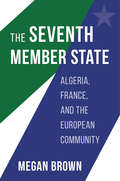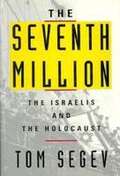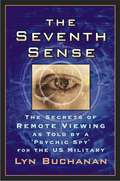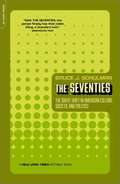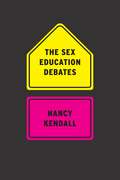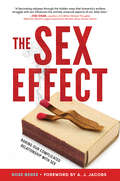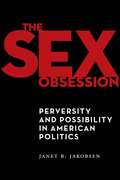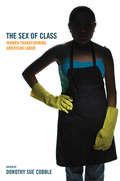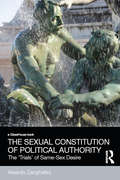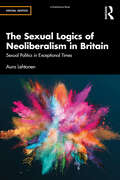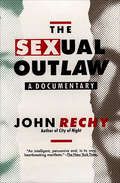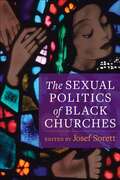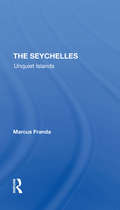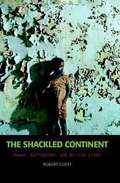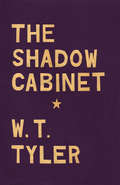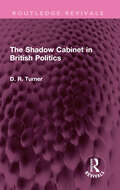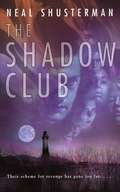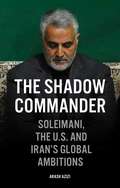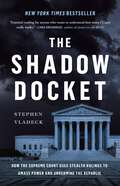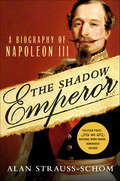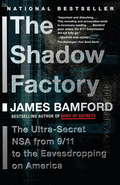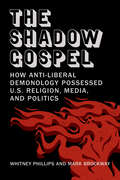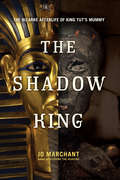- Table View
- List View
The Seventh Member State: Algeria, France, and the European Community
by Megan BrownThe surprising story of how Algeria joined and then left the postwar European Economic Community and what its past inclusion means for extracontinental membership in today’s European Union. On their face, the mid-1950s negotiations over European integration were aimed at securing unity in order to prevent violent conflict and boost economies emerging from the disaster of World War II. But French diplomats had other motives, too. From Africa to Southeast Asia, France’s empire was unraveling. France insisted that Algeria—the crown jewel of the empire and home to a nationalist movement then pleading its case to the United Nations—be included in the Treaty of Rome, which established the European Economic Community. The French hoped that Algeria’s involvement in the EEC would quell colonial unrest and confirm international agreement that Algeria was indeed French. French authorities harnessed Algeria’s legal status as an official département within the empire to claim that European trade regulations and labor rights should traverse the Mediterranean. Belgium, Italy, Luxembourg, the Netherlands, and West Germany conceded in order to move forward with the treaty, and Algeria entered a rights regime that allowed free movement of labor and guaranteed security for the families of migrant workers. Even after independence in 1962, Algeria remained part of the community, although its ongoing inclusion was a matter of debate. Still, Algeria’s membership continued until 1976, when a formal treaty removed it from the European community. The Seventh Member State combats understandings of Europe’s “natural” borders by emphasizing the extracontinental contours of the early union. The unification vision was never spatially limited, suggesting that contemporary arguments for geographic boundaries excluding Turkey and areas of Eastern Europe from the European Union must be seen as ahistorical.
The Seventh Million: The Israelis and the Holocaust
by Haim Watzman Tom SegevThe Seventh Million is the first book to show the decisive impact of the Holocaust on the identity, ideology, and politics of Israel. Drawing on diaries, interviews, and thousands of declassified documents, Segev reconsiders the major struggles and personalities of Israel's past, including Ben-Gurion, Begin, and Nahum Goldmann, and argues that the nation's legacy has, at critical moments--the Exodus affair, the Eichmann trial, the case of John Demjanjuk--have been molded and manipulated in accordance with the ideological requirements of the state. The Seventh Million uncovers a vast and complex story and reveals how the bitter events of decades past continue to shape the experiences not just of individuals but of a nation.
The Seventh Secret
by Irving WallaceEvery week a tall, attractive, older woman makes her regular visit to West Berlin. She bears a striking resemblance to Eva Braun, but how can that be?
The Seventh Sense: The Secrets of Remote Viewing as Told by a "Psychic Spy" for the U.S. Military
by Lyn BuchananKNOW YOUR ENEMY Perhaps the most intense military work we did was for Desert Storm. There was hardly a move made by Saddam Hussein and his troops that we had not predicted and passed up the chain of command the day before it happened. My major tasking throughout the war was to access Hussein and learn of his plans and intentions for the coming day. In the daily process of accessing him, I learned one thing very quickly. He is not what I would call a "bad" man. He is absolutely what I would call a totally crazy man. His craziness, though, does not take the form of irrationality or erratic behavior. It stems from a delusional conviction on his part that God wants him to rule the world...
The Seventies: The Great Shift in American Culture, Society, and Politics
by Bruce J. SchulmanSweeping away misconceptions about the "Me Decade, " Schulman offers a fast-paced, wide-ranging, and brilliant examination of the political, cultural, social, and religious upheavals of the 1970's.
The Sex Education Debates
by Nancy KendallEducating children and adolescents in public schools about sex is a deeply inflammatory act in the United States. Since the 1980s, intense political and cultural battles have been waged between believers in abstinence until marriage and advocates for comprehensive sex education. In The Sex Education Debates, Nancy Kendall upends conventional thinking about these battles by bringing the school and community realities of sex education to life through the diverse voices of students, teachers, administrators, and activists. Drawing on ethnographic research in five states, Kendall reveals important differences and surprising commonalities shared by purported antagonists in the sex education wars, and she illuminates the unintended consequences these protracted battles have, especially on teachers and students. Showing that the lessons that most students, teachers, and parents take away from these battles are antithetical to the long-term health of American democracy, she argues for shifting the measure of sex education success away from pregnancy and sexually transmitted infection rates. Instead, she argues, the debates should focus on a broader set of social and democratic consequences, such as what students learn about themselves as sexual beings and civic actors, and how sex education programming affects school-community relations.
The Sex Effect: Baring Our Complicated Relationship with Sex
by A. J. Jacobs Ross BenesA gripping exploration of the relationship between sex and our society, with a foreword by bestselling author A.J. JacobsWhy do political leaders become entangled in so many sex scandals? How did the U.S. military inadvertently help make San Francisco a mecca of gay culture? And what was the original purpose of vibrators? Find out the answers to all these questions and more as journalist Ross Benes delves into the complicated relationship between everyday human life—including religion, politics, and technology—and our sexuality.Drawing on history, psychology, sociology, and more, The Sex Effect combines innovative research and analysis with captivating anecdotes to reveal just how much sex shapes our society—and what it means for us as humans as we continue to struggle with the wide-ranging effects our sexuality has on the world around us.
The Sex Obsession: Perversity and Possibility in American Politics (Sexual Cultures #55)
by Janet R. JakobsenFinalist, 2021 Lambda Literary Award in LGBTQ StudiesOffers a way to undo the inextricable American knot of sex, politics, religion, and powerAmerican politics are obsessed with sex. Before the first televised presidential debate, John F. Kennedy trailed Richard Nixon in the polls. As Americans tuned in, however, they found Kennedy a younger, more vivacious, and more attractive choice than Nixon. Sexier. The political significance of Kennedy’s telegenic sex appeal is now widely accepted – but taking sexual politics seriously is not. Janet R. Jakobsen examines how, for the last several decades, gender and sexuality have reappeared time and again at the center of political life, marked by a series of widely recognized issues and movements – women’s liberation and gay liberation in the 1960s and ’70s, the AIDS crisis and ACT UP in the ‘80s and ’90s, welfare and immigration “reform” in the ‘90s, wars claiming to “save women” in the 2000s, and battles over health care in the 2010s, to recent demands for reproductive justice, trans liberation, and the explosive exposures of #MeToo.Religion has been wound up in these political struggles, and blamed for not a little of the resistance to meaningful change in America political life. Jakobsen acknowledges that religion is a force to be reckoned with, but decisively breaks with the common sense that religion and sex are the fixed binary of American political life. She instead follows the kaleidoscopic ways in which sexual politics are embedded in social relations of all kinds – not only the intimate relations of love and family with which gender and sex are routinely associated, but also secularism, freedom, race, disability, capitalism, nation and state, housing and the environment.In the midst of these obsessions, Jakobsen’s promiscuous ethical imagination guides us forward. Drawing on examples from collaborative projects among activists, academics and artists, Jakobsen shows that sexual politics can contribute to building justice from the ground up. Gender and sexual relations are practices through which values emerge and communities are made. Sex and desire, gender and embodiment emerge as bases of ethical possibility, breaking political stalemate and opening new possibility.
The Sex of Class: Women Transforming American Labor
by Dorothy Sue CobbleWomen now comprise the majority of the working class. Yet this fundamental transformation has gone largely unnoticed. This book is about how the sex of workers matters in understanding the jobs they do, the problems they face at work, and the new labor movements they are creating in the United States and globally. In The Sex of Class, twenty prominent scholars, labor leaders, and policy analysts look at the implication of this "sexual revolution" for labor policy and practice. The Sex of Class introduces readers to some of the most vibrant and forward-thinking social movements of our era: the clerical worker protests of the 1970s; the emergence of gay rights on the auto shop floor; the upsurge of union organizing in service jobs; worker centers and community unions of immigrant women; successful campaigns for paid family leave and work redesign; and innovative labor NGOs, cross-border alliances, and global labor federations. Revealing the animating ideas and the innovative strategies put into practice by the female leaders of the twenty-first-century social justice movement, the contributors to this book offer new ideas for how government can help reduce class and sex inequalities. They assess the status of women and sexual minorities within the traditional labor movement and they provide inspiring case studies of how women workers and their allies are inventing new forms of worker representation and power.
The Sexual Constitution of Political Authority: The 'Trials' of Same-Sex Desire (Social Justice)
by Aleardo ZanghelliniWhile there is no shortage of studies addressing the state’s regulation of the sexual, research into the ways in which the sexual governs the state and its attributes is still in its infancy. The Sexual Constitution of Political Authority argues that there are good reasons to suppose that our understandings of state power quiver with erotic undercurrents. The book maintains, more specifically, that the relationship between ideas of political authority and male same-sex desire is especially fraught. Through a series of case studies where a statesman’s same-sex desire was put on trial (either literally or metaphorically) as a problem for the good exercise of public powers, the book shows the resilience and adaptability of cultural beliefs in the incompatibility between public office and male same-sex desire. Some of the case studies analysed are familiar ground for both political/constitutional history and the history of sexuality. The Sexual Constitution of Political Authority argues, however, that only by systematically reading questions of institutional politics and questions of sexuality through each other will we have access to the most interesting insights that a study of these trials can generate. Whether they involve obscure public officials or iconic rulers such as Hadrian and James I, these compelling fragments of queer history reveal that the disavowal of male same-sex desire has been, and partly remains, central to mainstream understandings of political authority.
The Sexual Logics of Neoliberalism in Britain: Sexual Politics in Exceptional Times (Social Justice)
by Aura LehtonenThis book explores the relationship between sexuality and politics in Britain’s recent political past, in the decade preceding the Covid-19 pandemic, and asks what sexual meanings and logics are embedded in the dominant political discourses and policies of this time. A discursive framing of ‘exceptionality’ has commonly attached to the politics of austerity, crisis and neoliberalisation that have characterised the 2010s in Britain, with many noting the depoliticising effects of such a crisis politics. The book’s four case studies each investigate a binary concept that has played a key role in these limited and limiting discourses: the stable family/troubled family; deserving/undeserving; public/private and material/cultural. Deploying an expansive notion of sexuality, these binaries are examined by analysing a range of cultural and political texts in which they are reproduced, from policy and legal documents to popular films and TV series. This empirically informed and theoretically innovative analysis makes an important contribution to understandings of sexuality, identity and inequalities, as well as of crisis and neoliberalism. It will be of interest to scholars and students in gender and sexuality studies, cultural studies, sociology, politics and social policy.
The Sexual Outlaw: A Documentary (Books That Changed the World)
by John RechyFrom the award-winning writer, &“a passionate manifesto for gay rights by an author who openly and unapologetically identifies himself as a participant&” (People). In this angry, eloquent outcry against the oppression of homosexuals, the author of the classic City of Night gives &“an explosive non-fiction account, with commentaries, of three days and nights in the sexual underground&” of Los Angeles in the 1970s—the &“battlefield&” of the sexual outlaw. Using the language and techniques of film, Rechy deftly intercuts the despairing, joyful, and defiant confessions of a male hustler with the &“chorus&” of his own subversive reflections on sexual identity and sexual politics, and with stark documentary, reports of the violence our society directs against homosexuals—&“the only minority against whose existence there are laws.&” &“An intelligent, persuasive and, in its way, heartbreaking manifesto.&” —The New York Times &“A jolting book . . . An intense, personal, and courageous document. A book written out of rage, unnerving, thought provoking.&” —Los Angeles Times Praise for John Rechy &“Rechy shows great comic and tragic talent. He is truly a gifted novelist.&” —Christopher Isherwood, author and playwright &“His tone rings absolutely true, is absolutely his own, and he has the kind of discipline which allows him a rare and beautiful recklessness. He tells the truth, and tells it with such passion that we are forced to share in the life he conveys. This is a most humbling and liberating achievement.&” —James Baldwin, novelist, playwright, and activist &“His uncompromising honesty as a gay writer has provoked as much fear as admiration . . . John Rechy doesn&’t fit into categories. He transcends them. His individual vision is unique, perfect, loving and strong.&” —Carolyn See, author of Dreaming: Hard Luck and Good Times in America
The Sexual Politics of Black Churches (Religion, Culture, and Public Life #2)
by Josef SorettThis book brings together an interdisciplinary roster of scholars and practitioners to analyze the politics of sexuality within Black churches and the communities they serve. In essays and conversations, leading writers reflect on how Black churches have participated in recent discussions about issues such as marriage equality, reproductive justice, and transgender visibility in American society. They consider the varied ways that Black people and groups negotiate the intersections of religion, race, gender, and sexuality across historical and contemporary settings.Individually and collectively, the pieces included in this book shed light on the relationship between the cultural politics of Black churches and the broader cultural and political terrain of the United States. Contributors examine how churches and their members participate in the formal processes of electoral politics as well as how they engage in other processes of social and cultural change. They highlight how contemporary debates around marriage, gender, and sexuality are deeply informed by religious beliefs and practices.Through a critically engaged interdisciplinary investigation, The Sexual Politics of Black Churches develops an array of new perspectives on religion, race, and sexuality in American culture.
The Seychelles: Unquiet Islands
by Marcus FrandaThis book traces the historical background of the Seychelles from their first settlements through independence from Britain in 1976 and into the early 1980s. It focuses on the issues of environment, social and race relations, economic and strategic forces, and domestic and international politics.
The Shackled Continent: Power, Corruption, and African Lives
by Robert GuestThe Shackled Continent, Robert Guests fascinating first book, seeks to diagnose the sickness that continues to hobble Africa's development. Using reportage, first hand experience and economic insight, Robert Guest takes us to the roots of the problems. Two fifths of African nations are at war, AIDS has lowered life expectancy to as young as forty years old and investment is almost impossible as houses that could be used as collateral do not formally belong to their owners. Most shocking of all is the evidence that the billions of dollars of aid, given to Africa has had little perceptible effect on the poor. The Shackled Continent offers, sometimes controversial, explanations for this state of affairs. In this magnificent and engaging book, Robert Guest provides an invigorating history and an inspired commentary on the enigma of modern Africa. Was extensively and ecstatically reviewed on hardback publication. Interest in Africa will be high as 2005 is the twenty-year anniversary of Live Aid.
The Shadow Cabinet
by W. T. TylerThe first year of the Reagan administration finds all manners of scoundrels and supplicants scrounging for favors and position.
The Shadow Cabinet in British Politics (Routledge Revivals)
by D. R. TurnerFirst published in 1969 The Shadow Cabinet in British Politics attempts to trace and examine the history, growth, and development of the body popularly known as the ‘Shadow Cabinet’ in Britain. This body is concerned with power and aspirations of power. The personnel of Shadow Cabinets are, or at least should be, constantly prepared to assume the mantle of government. The book discusses important themes like the origins of the idea of the Shadow Cabinet; Sir William Harcourt and the Shadow Cabinet; Balfour and the Conservative Party; from MacDonald to Churchill; the difference between formally and informally elected Opposition Front Benches; and the relationship between Opposition responsibilities and ministerial appointments. This comprehensive short book is a must read for students of British politics and political science.
The Shadow Club
by Neal ShustermanThe Shadow Club starts simply enough: the kids who are tired of being second-best get together and, for the first time, talk about how they feel. But soon the members decide to play practical jokes on the first-place winners they envy, and things begin to spin dangerously out of control. "This is a provocative novel . . . The plot is ingeniously simple and the course of events compelling. Brisk enough to snag a popular audience, but forceful in impact, it will leave readers thinking." (Booklist, starred review)
The Shadow Commander: Soleimani, the US, and Iran's Global Ambitions
by Arash AziziWhen the US assassinated Qassem Soleimani in January 2020, he was one of the most powerful men in Iran. The military spearhead for Iranian foreign policy, he enacted the wishes of the country&’s Supreme Leader, establishing the Islamic Republic as a major force in the Middle East. He masterminded interventions in Afghanistan, Iraq, Lebanon, Syria and Yemen, supporting Iran&’s allies and campaigning against the Taliban, US forces, Israel and ISIS. But all this was a long way from where he began – on the margins of a country whose ruler was regarded as a friend of the West. In this gripping account, Arash Azizi examines Soleimani&’s life, regional influence and future ambitions. He breaks new ground through interviews with Iranians, Afghans, Iraqis and Syrians who knew Soleimani for years, including his personal driver, the aides who accompanied him to his Moscow meeting with Vladimir Putin, and his brother. Through Soleimani, Azizi reveals the true nature of Iran&’s global ambitions, providing a rare insight into a country whose actions are much talked about but seldom understood.
The Shadow Docket: How the Supreme Court Uses Stealth Rulings to Amass Power and Undermine the Republic
by Stephen VladeckAn instant New York Times bestseller: An acclaimed legal scholar&’s &“important&” (New York Times) and &“fascinating&” (Economist) exposé of how the Supreme Court uses unsigned and unexplained orders to change the law behind closed doors. The Supreme Court has always had the authority to issue emergency rulings in exceptional circumstances. But since 2017, the Court has dramatically expanded its use of the behind-the-scenes &“shadow docket,&” regularly making decisions that affect millions of Americans without public hearings and without explanation, through cryptic late-night rulings that leave lawyers—and citizens—scrambling. The Court&’s conservative majority has used the shadow docket to green-light restrictive voting laws and bans on abortion, and to curtail immigration and COVID vaccine mandates. But Americans of all political stripes should be worried about what the shadow docket portends for the rule of law, argues Supreme Court expert Stephen Vladeck. In this rigorous yet accessible book, he issues an urgent call to bring the Court back into the light.
The Shadow Economy
by Friedrich Schneider Dominik H. EnsteEuropean and Australian economists share recent findings on the size and development of the shadow economies; the driving factors of the shadow economy; and its interaction with tax morale, government institutions, and corruption. Their topics include a first attempt at a public choice explanation for the size and development of the shadow economy in India, regional variations in the nature of the shadow economy as revealed in a survey of 27 European Union member states, representative survey data in Germany on who is working illicitly and why, a critical appraisal of existing evidence on the link between the intrinsic motivation to comply with tax law and actual compliance behavior, and a latent variables approach to the impact of institutions on the shadow economy and corruption. Annotation ©2012 Book News, Inc. , Portland, OR (booknews. com)
The Shadow Emperor: A Biography of Napoleon III
by Alan Strauss-SchomA &“boldly revisionist biography&” of the controversial, polarizing nineteenth-century French emperor, Louis-Napoleon III (The Wall Street Journal). Considered one of the pre-eminent Napoleon Bonaparte experts, Pulitzer Prize-nominated historian Alan Strauss-Schom has turned his sights on another in that dynasty, Napoleon III (Louis-Napoleon) overshadowed for too long by his more romanticized forebear. In the first full biography of Napoleon III by an American historian, Strauss-Schom uses his years of primary source research to explore the major cultural, sociological, economical, financial, international, and militaristic long-lasting effects of France&’s most polarizing emperor. Louis-Napoleon&’s achievements have been mixed and confusing, even to historians. He completely revolutionized the infrastructure of the state and the economy, but at the price of financial scandals of imperial proportions. In an age when &“colonialism&” was expanding, Louis-Napoleon&’s colonial designs were both praised by the emperor&’s party and the French military and resisted by the socialists. He expanded the nation&’s railways to match those of England; created major new transoceanic steamship lines and a new modern navy; introduced a whole new banking sector supported by seemingly unlimited venture capital, while also empowering powerful new state and private banks; and completely rebuilt the heart of Paris, street by street. Napoleon III wanted to surpass the legacy of his famous uncle, Napoleon I. In The Shadow Emperor, Alan Strauss-Schom sets the record straight on Napoleon III&’s legacy.
The Shadow Factory
by James BamfordJames Bamford has been the preeminent expert on the National Security Agency since his reporting revealed the agency's existence in the 1980s. Now Bamford describes the transformation of the NSA since 9/11, as the agency increasingly turns its high-tech ears on the American public.The Shadow Factory reconstructs how the NSA missed a chance to thwart the 9/11 hijackers and details how this mistake has led to a heightening of domestic surveillance. In disturbing detail, Bamford describes exactly how every American's data is being mined and what is being done with it. Any reader who thinks America's liberties are being protected by Congress will be shocked and appalled at what is revealed here.From the Trade Paperback edition.
The Shadow Gospel: How Anti-liberal Demonology Possessed U.S. Religion, Media, and Politics
by Whitney Phillips Mark BrockwayA novel account of the culture wars and Evangelical influence in the United States that traces the 80-year rise of a quasi-religious anti-liberal demonology.When people talk about the chaotic, increasingly precarious political landscape in the United States, they often blame polarization and the culture wars. In The Shadow Gospel, Whitney Phillips and Mark Brockway tell a very different story. Analyzing eighty years of densely overlapping religious and secular messages preaching the dangers of liberalism, the book argues that the fracture and chaos in U.S. politics isn&’t the result of a clean split between left and right. Instead, it&’s a split between the shadow gospel&’s quasi-religious anti-liberal demonology—the vague sense that an evil leftist force is threatening to destroy American society—and the people accused of being the liberal devil. A shadow gospel framework helps contextualize the violence of January 6, 2021, the fervor of Satanic conspiracy theorizing, and the crusade against &“wokeness&” and LGBTQ existence. But it also helps explain the most vexing elements of our politics: that the most potent source of religious messaging and influence in the United States is secular, that the most ruthless destroyers of Republicans are other Republicans, and that anti-liberal fear and loathing span the political spectrum.By offering new ways of thinking about religious influence, the left/right dichotomy, and the appeal of Donald Trump, The Shadow Gospel reveals the true roadblocks to pluralistic democracy and emphasizes what people across the religious and political spectrum stand to lose if we don&’t exorcise our anti-liberal demons. There are no easy solutions to our vast and complicated political problems. But those solutions will remain elusive if how we frame our problems is part of the problem. It is long past time to drag the shadow gospel out into the light.
The Shadow King: The Bizarre Afterlife of King Tut's Mummy
by Jo MarchantMore than 3,000 years ago, King Tutankhamun's desiccated body was lovingly wrapped and sent into the future as an immortal god. After resting undisturbed for more than three millennia, King Tut's mummy was suddenly awakened in 1922. Archaeologist Howard Carter had discovered the boy-king's tomb, and the soon-to-be famous mummy's story--even more dramatic than King Tut's life--began.The mummy's "afterlife" is a modern story, not an ancient one. Award-winning science writer Jo Marchant traces the mummy's story from its first brutal autopsy in 1925 to the most recent arguments over its DNA. From the glamorous treasure hunts of the 1920s to today's high-tech scans in volatile modern Egypt, Marchant introduces us to the brilliant and sometimes flawed people who have devoted their lives to revealing the mummy's secrets, unravels the truth behind the hyped-up TV documentaries, and explains what science can and can't tell us about King Tutankhamun.
